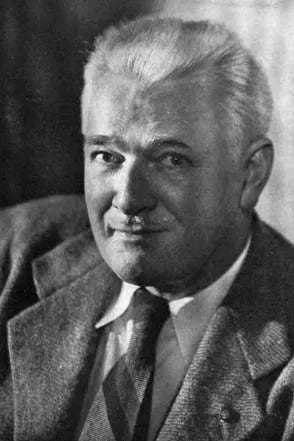This Fiction Business
Revisiting the wisdom of the King of the Pulps
Editor’s Note:
In preparation for the launch of the INK & GRIT: Masters of Pulp Fiction article series, below is my review of an out-of-print classic book written by the King of the Pulps, H. Bedford-Jones. This article, originally published in my now defunct newsletter, The Pulp Fictioneer, sets the tone for what readers can expect this Summer with an in-depth look at the attitude and lives of the almost forgotten pulp writers.
Enjoy,
- Frank Theodat
Published in 1922, This Fiction Business serves as a great stepping stone to any fiction writer looking to hone his or her storytelling craft, build confidence, and produce stories for pleasure and profit. Upon completion, I wanted to write this article and share some lessons that I think are useful. If just one reader can take the advice here and apply it to their production, then I have fulfilled my task.
Let’s dive in!
H. Bedford-Jones (HBJ) begins in the Preface with a candid disclaimer:
“This book is not to be regarded as an authority on story-writing; by no means should it be read by anyone who aspires to literature, for, like Socrates, it will assuredly corrupt them and lead them into the worship of strange gods.
It is destined only for those who desire to make a living by writing stories, in the hope that it may be of some benefit to them... And, brethren, if you find any practical and useful hints in these pages, accept them with the sincere good wishes of H. Bedford-Jones.”
HBJ does not want us to consider him a teacher, but a practitioner; a laborer who toils daily to meet the needs of the magazine readers and the editors who serve them. When asked why he or any other professional writer doesn’t simply start a school to teach storytelling to young starry-eyed novices, HBJ simply replies with, “Because I can make more money and have more fun in writing than in teaching.”
Beautiful.
“Can I Write Stories?”
HBJ seems to think so:
“Yes, it is simple to write stories. We are taught doing to do it in school, and we keep right on it. In it, most of us find the outlet for a great craving which is usually repressed yet none the less insurgent the craving to create something. His need for hunger and love satisfied, man then seeks to create, being fashioned in the image of God; and if he can make his creative work supply his needs, if he can make his imagination pay his bills, he is in the seventh heaven.”
Doing the Work
HBJ discusses how no two writers are alike, that fiction is an individual business and a practitioner must put the time in if they are to find success. Seems straightforward, though often hard to follow.
Here’s where things get interesting.
“Believe it or not-I haven't; nary a plot nor a scheme. Instead, I have followed a system of my own for the past twenty years; it just happens to be my own way of writing a story, that's all.
Here is my own recipe: Put a sheet of paper into the machine, start writing, and go ahead.1
The chances are that you can get a flying start with a good bit of dialogue or a fine situation.
After a few pages, stop and study your characters. Go on writing from page to page, and let the plot form itself as you proceed. If you like, have a climax to write up to; otherwise, let the climax come of itself. Plot and climax will come as you go along.
Laugh at that recipe if you like -- they all do! Yet it suits me. One must freely admit that this is not a safe, sound and conservative way to write a story. It is not to be commended to the amateur, except as an experiment at which to take a whack. Of course, it may work all right with me and may not work at all with you. There are no rules!"
Now I recognize that the passage above may stir some emotions from writers who are staunch plotters and must know every single detail before they venture into a story, but as the author suggests - there are no rules to fiction writing. If you wish to plot or scribble an outline, and it works for you then you are free to do so!
“No one can successfully tell you how to construct a story; there is no definite framework or skeleton, except such as you make for yourself. You must get your own viewpoint on that, and express your own character in doing it”.
Honesty and Suggestion
Do you ever write a sentence, a paragraph, a scene, or a chapter and say out loud, this is shit! then frantically hit the backspace and rewrite that sentence, paragraph, or scene to death? You’re killing your story! You are throwing away all the eccentricity, style, character, and nitty-gritty details that give your writing life. Writing fiction is a joyous act of creation or to put it another way:
“Don’t suggest failure to yourself…When you allow your concentration to scatter on your readers and their dislikes, you are lost. You must write your story in the sheer joy of creation. If your story never sells at all, you are fully repaid by this joy and mystery of creation.”
Hack Writing
This chapter is my favorite. On page 117, Bedford-Jones recounts his experience ghostwriting children's books for an unnamed author for a flat rate.
I have a fun theory of who the mystery author might be….
“A business man in Chicago wrote some books for boys in his spare time. They were brought out by a publishing house in which he had an interest. They attained such a huge success that his publishers insisted on getting more.
Being a very busy man, he was unable to write more. So he called in a number of newspaper men and gave them the chance to write these books under his pen-name. He tried them out carefully, gave them each a book to write, and awaited results.
Out of several called, two men were chosen; they could duplicate his work excellently. He showed them just how to write the stories, as those of his own had been written, and put them to work. He paid them a hundred dollars flat for all rights in their manuscript, and for the sake of the experience, they were very glad to accept.
One of these men, at least, turned out about a dozen of these books. The series became highly popular; perhaps the most popular books for boys were published in late years, and attained a huge department-store sale. They still sell fast, and more books have been added to the series by other writers.”
I immediately thought of Edward Stratemeyer, the author, and publisher of the book packaging company, Stratemeyer Syndicate. Though an author of 1,300 books himself, Stratemeyer would hire writers and pay them a standard fee to pen books in a series such as Nancy Drew, The Hardy Boys, and Tom Swift. It’s a fascinating and rich story that I may dive into at a later date. Of course, I’m only speculating that Bedford-Jones ghostwrote for Stratemeyer, as he would have only received a paycheck and no credit. But it’s a fun theory.
These are just a few highlights I wanted to share. There are more nuggets of wisdom in the original text that you can find in the Kindle edition.
Though I was fortunate enough to learn these lessons from long term, professional writers (along with my own personal experience), I hope the words of Mr. Bedford-Jones inspire you to go forth and keep up with your own fiction. There is plenty of bad advice out there that often discourages writers and fills their heads with nonsense.
I write these articles about the pulp writers to show other aspiring pros there is another way; an alternative to writing and publishing that is fun and productive. If you look closely at some of the most prolific bestsellers of today and years past (Koontz, Child, HBJ, Max Brand,etc.) and really pay attention to their process, you’ll find some similarities to the lessons in This Fiction Business. Some readers will scoff at this, call it horse pucky, and move on. Some will take this information and try it for their own work. Who knows?
But as the author tells us - There are no rules.






Bedford-Jones was Canadian by birth, and, as a Canadian who succeeded in the difficult American market, I have looked to his career for inspiration.
Wow! All this time i never took on writing due to i felt i needed structure or a framework in order to write a story! Absolutely fantastic read !!! Thanks for this